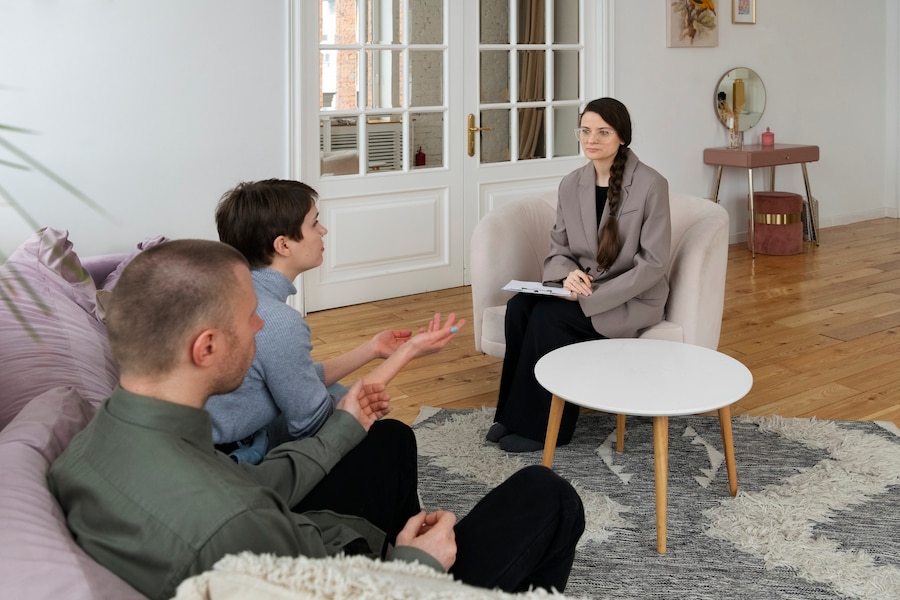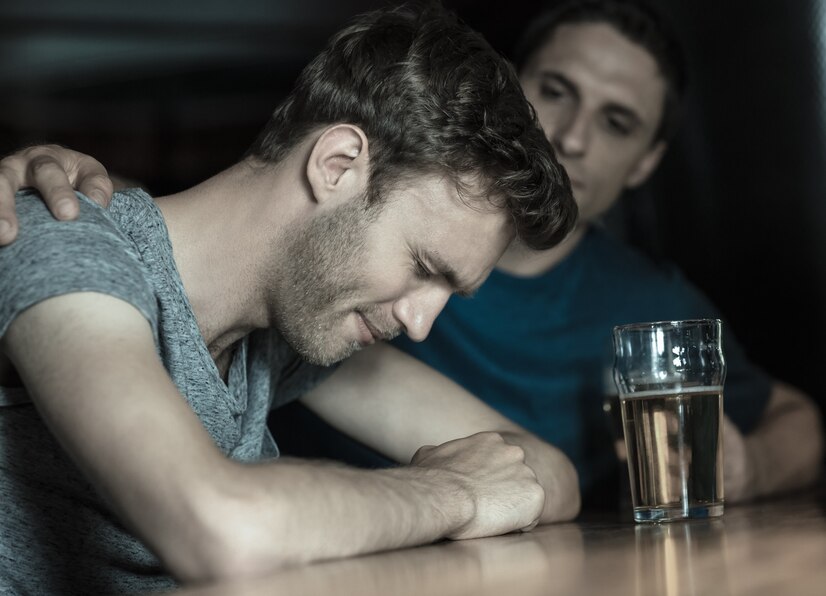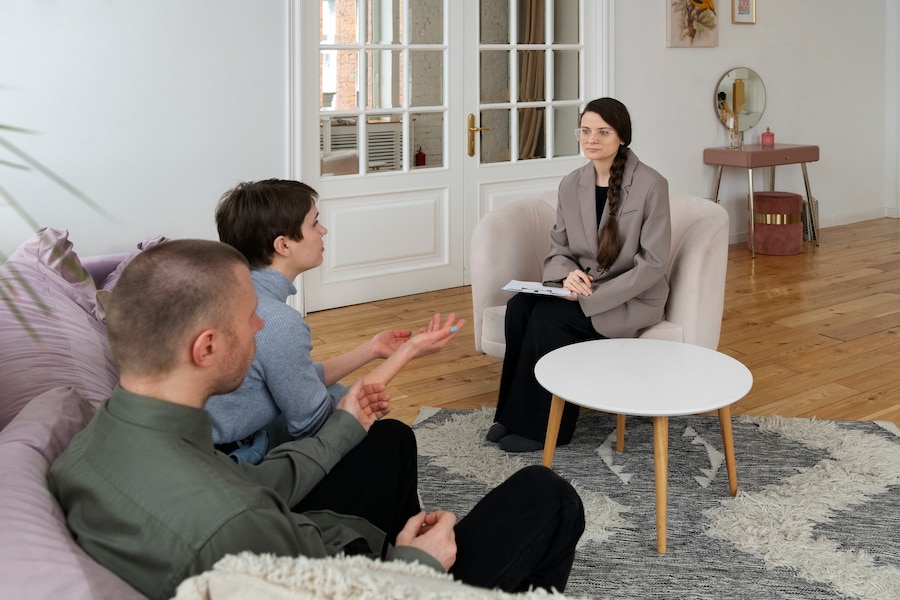Counseling and Support
Counseling and support play crucial roles in mental health and addiction recovery. Effective counseling can provide individuals with the tools and insights needed to navigate their recovery journey, while support systems help maintain progress and prevent relapse. This guide explores the various aspects of counseling and support, offering insights into different therapy types, the importance of confidentiality, and how to integrate these services with other treatment modalities. Whether you’re seeking personal therapy or looking to build a support network, understanding these elements is key to achieving lasting recovery and mental well-being.
The Role of Counseling in Mental Health and Addiction Recovery
Counseling is a fundamental component of mental health and addiction recovery, offering individuals a structured space to address their emotional and psychological challenges. Through counseling, individuals can explore the underlying causes of their mental health issues or addiction, develop coping strategies, and work towards personal growth. Therapy provides a safe and supportive environment where clients can express their thoughts and feelings, gain insight into their behaviors, and make meaningful changes in their lives.
In addiction recovery, counseling helps individuals understand the root causes of their substance use, build healthier coping mechanisms, and develop a plan for maintaining sobriety. It also supports the development of skills necessary for managing stress, improving relationships, and handling triggers that may lead to relapse. Effective counseling fosters resilience and empowers individuals to take an active role in their recovery process.
Types of Counseling: Individual, Group, and Family Therapy
Counseling comes in various formats, each serving distinct purposes and addressing different aspects of recovery.
Individual Therapy: This one-on-one counseling approach focuses on personal issues, allowing for a deep and personalized exploration of individual challenges. It provides a confidential setting where clients can work closely with a therapist to address specific concerns, set goals, and develop strategies for overcoming obstacles.
Group Therapy: Group counseling involves multiple participants who share similar experiences or challenges. It offers a supportive environment where individuals can learn from others, share their own experiences, and receive feedback from both peers and therapists. Group therapy can enhance social skills, reduce feelings of isolation, and provide a sense of community.
Family Therapy: This type of counseling involves working with family members to address relational dynamics and improve communication. Family therapy helps resolve conflicts, rebuild trust, and strengthen support systems within the family unit. It can be particularly beneficial in addiction recovery, where family dynamics often play a significant role in the individual’s journey.
Understanding the Different Counseling Approaches
Counseling approaches vary in their methods and philosophies, each offering unique benefits for different individuals. Some common approaches include:
Cognitive Behavioral Therapy (CBT): CBT focuses on identifying and changing negative thought patterns and behaviors. It is effective in treating a range of issues, including depression, anxiety, and addiction, by helping individuals develop healthier ways of thinking and coping.
Motivational Interviewing (MI): MI is a client-centered approach that aims to enhance motivation and commitment to change. It is often used in addiction treatment to help individuals explore their ambivalence about recovery and build a strong desire for positive change.
Dialectical Behavior Therapy (DBT): DBT combines cognitive-behavioral techniques with mindfulness and emotional regulation strategies. It is particularly useful for individuals struggling with intense emotions and self-destructive behaviors, such as those found in borderline personality disorder.
Solution-Focused Brief Therapy (SFBT): SFBT focuses on finding solutions to current problems rather than delving into past issues. It emphasizes building on clients’ existing strengths and resources to achieve their goals.
The Benefits of Support Groups in Recovery
Support groups provide a valuable complement to individual counseling, offering additional layers of support and encouragement. These groups create a sense of belonging and understanding among individuals facing similar challenges, fostering a supportive community where members can share experiences, offer advice, and provide mutual encouragement.
The benefits of support groups include reduced feelings of isolation, enhanced motivation, and improved coping skills. They also provide opportunities for members to learn from others who have successfully navigated recovery, gaining insights and strategies that can be applied to their own journey. Support groups can be particularly effective in reinforcing the skills learned in individual counseling and promoting long-term recovery.
How to Find the Right Counselor or Therapist
Finding the right counselor or therapist is crucial for effective treatment and support. Start by considering your specific needs and preferences, such as the type of therapy you are interested in, the therapist’s specialization, and their approach to treatment.
Research potential counselors by checking their credentials, experience, and client reviews. You may also seek recommendations from healthcare providers, friends, or family members who have had positive experiences with therapy. It’s important to find a therapist with whom you feel comfortable and who can address your unique challenges effectively.
During the initial consultation, assess whether the therapist’s communication style and approach align with your needs. Establishing a good rapport and feeling understood are key factors in achieving successful therapeutic outcomes.
The Importance of Confidentiality in Counseling
Confidentiality is a cornerstone of effective counseling and therapy. It ensures that clients can openly discuss their thoughts, feelings, and experiences without fear of judgment or exposure. Confidentiality helps build trust between the client and therapist, creating a safe space for exploration and growth.
Counselors are bound by ethical and legal standards to protect client information and maintain confidentiality. However, it is important for clients to understand the limits of confidentiality, such as situations involving imminent harm or abuse, where disclosure may be required. Discussing confidentiality policies with your counselor can help clarify any concerns and establish a strong foundation for your therapeutic relationship.

Integrating Counseling with Other Treatment Modalities
Counseling is often most effective when integrated with other treatment modalities. For instance, combining individual therapy with medical treatment or support groups can provide a comprehensive approach to recovery. This integration allows for a more holistic treatment plan that addresses both psychological and physical aspects of mental health and addiction.
Coordinating counseling with other therapies, such as medication management or holistic practices, ensures that all aspects of the individual’s well-being are considered. This integrated approach can enhance the overall effectiveness of treatment and support long-term recovery.
The Impact of Counseling on Long-Term Recovery
Counseling plays a critical role in supporting long-term recovery by providing ongoing guidance and support. It helps individuals develop and maintain coping skills, address any emerging challenges, and build resilience against potential relapses. Regular counseling sessions can reinforce the progress made during treatment and provide a continued source of support.
Long-term counseling can also help individuals set and achieve new goals, explore changes in their life circumstances, and adapt their recovery strategies as needed. By maintaining a connection with a counselor, individuals can ensure that they have the resources and support necessary to navigate the complexities of long-term recovery.
Virtual and In-Person Counseling: Pros and Cons
Both virtual and in-person counseling have their advantages and drawbacks.
Virtual Counseling: Online therapy offers flexibility and convenience, allowing clients to attend sessions from the comfort of their own homes. It can be particularly beneficial for those with mobility issues or busy schedules. Virtual counseling also provides access to a wider range of therapists, including those who may not be available locally. However, it may lack the personal connection and immediacy of in-person interactions, and technical issues could impact the experience.
In-Person Counseling: Face-to-face therapy provides a more personal and immediate connection, which can enhance the therapeutic relationship and communication. It allows for non-verbal cues and a more immersive experience. However, it may require travel and adherence to scheduled appointments, which could be challenging for some individuals.
Choosing between virtual and in-person counseling depends on personal preferences, logistical considerations, and the specific needs of the individual.
The Role of Peer Support in Recovery
Peer support plays a vital role in recovery by offering empathy, understanding, and shared experiences. Peers who have navigated similar challenges can provide valuable insights, encouragement, and practical advice. Peer support groups and mentors can complement professional counseling by offering additional layers of support and connection.
Engaging with peers in recovery can also help individuals develop social networks and reduce feelings of isolation. This support system can be crucial for maintaining motivation and commitment to recovery goals, as well as for building a sense of community and belonging.
Building a Support Network: Friends, Family, and Community
Building a strong support network is essential for sustained recovery. Friends, family, and community members can provide emotional support, practical assistance, and encouragement throughout the recovery journey.
Involving loved ones in the recovery process can help strengthen relationships and foster a supportive environment. Educating family and friends about addiction and recovery can enhance their ability to provide meaningful support. Additionally, engaging with community resources, such as local support groups and organizations, can expand your network and offer additional avenues for assistance.
The Role of Counseling in Relapse Prevention
Counseling plays a crucial role in relapse prevention by helping individuals identify and address triggers, develop coping strategies, and maintain motivation for recovery. Through ongoing therapy, individuals can explore the underlying issues that contribute to their addiction and work on strategies to manage cravings and stress.
Counselors can also help individuals create personalized relapse prevention plans, which may include identifying warning signs, developing action plans, and building a support system. Regular counseling sessions can reinforce the skills and strategies needed to navigate challenges and prevent relapse, ensuring that individuals stay on track with their recovery goals.
The Ongoing Need for Counseling and Support
Counseling and support are integral to achieving and maintaining mental health and addiction recovery. By understanding the various types of counseling, exploring different approaches, and building a strong support network, individuals can enhance their recovery journey and foster long-term well-being. If you’re ready to take the next step in your recovery, reach out to us today. We’re here to provide the support and guidance you need to navigate your path to recovery successfully
FAQs
-
What is the role of counseling and support in couples therapy and addiction treatment? Counseling and support provide a safe and supportive environment for individuals and couples to address emotional, psychological, and relationship challenges.
-
How can counseling and support help couples overcome addiction together? Counseling can help couples develop healthy communication skills, resolve conflicts, and navigate the challenges of addiction recovery. Support groups can provide a sense of community and understanding.
-
What are the different types of counseling and support available? Types of counseling include individual therapy, couples therapy, family therapy, and group therapy. Support groups can be specific to addiction recovery, relationship issues, or mental health conditions.
-
How can counseling and support help individuals manage emotions and stress during recovery? Counseling provides tools for managing emotions, reducing stress, and developing healthy coping mechanisms. Support groups offer a sense of community and understanding.
-
What are the benefits of seeking counseling and support for couples facing addiction challenges? Counseling can improve communication, strengthen relationships, and increase the chances of successful recovery. Support groups can provide a sense of belonging and encouragement.
-
How often should couples attend counseling sessions? The frequency of counseling sessions depends on individual needs and treatment goals. Typically, sessions are held weekly or bi-weekly.
-
Can counseling and support help address underlying issues that may contribute to addiction? Yes, counseling can help identify and address underlying mental health conditions, relationship difficulties, or trauma that may contribute to addiction.
-
How can I find a qualified counselor or support group in my area? Research therapists and support groups specializing in couples therapy or addiction recovery. Seek recommendations from healthcare providers or online directories.
-
Is counseling and support covered by insurance? Insurance coverage for counseling and support varies depending on your plan. Check with your insurance provider to determine your benefits.
-
What can I expect from my first counseling session? Expect to discuss your goals, concerns, and challenges. The therapist will create a personalized treatment plan tailored to your needs.




















Recent Comments